Filter by
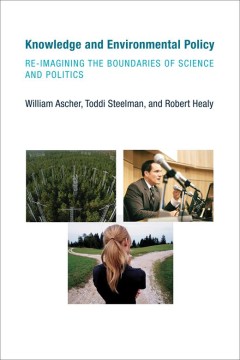
Knowledge and environmental policy: Re-imagining the boundaries of science an…
During the George W. Bush administration, politics and ideology routinely trumped scientific knowledge in making environmental policy. Data were falsified, reports were edited selectively, and scientists were censored. The Obama administration has pledged to restore science to the policy making process. And yet, as the authors of Knowledge and Environmental Policy point out, the problems in con…
- Edition
- -
- ISBN/ISSN
- 9780262289153
- Collation
- 1 online resource (xv, 260 pages) :illustrations.
- Series Title
- -
- Call Number
- -

Technologies of Power: Essays in Honor of Thomas Parke Hughes and Agatha Chip…
This collection explores how technologies become forms of power, how people embed their authority in technological systems, and how the machines and the knowledge that make up technical systems strengthen or reshape social, political, and cultural power. The authors suggest ways in which a more nuanced investigation of technology's complex history can enrich our understanding of the changing me…
- Edition
- -
- ISBN/ISSN
- 9780262267038
- Collation
- 1 online resource (xx, 339 pages) :illustrations
- Series Title
- -
- Call Number
- -
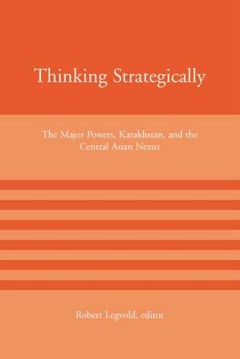
Thinking Strategically: The Major Powers, Kazakhstan, and the Central Asian N…
More than ten years after the breakup of the Soviet Union, none of the major powers, including Russia, has developed a cohesive geopolitical strategy for dealing with the countries and regions that once made up the USSR. Even after September 11 and the sudden importance of Central Asia in the struggle against global terrorism, the United States continues to deal with the region in fragmented an…
- Edition
- -
- ISBN/ISSN
- 9780262278133
- Collation
- 1 online resource (xii, 243 pages).
- Series Title
- -
- Call Number
- -
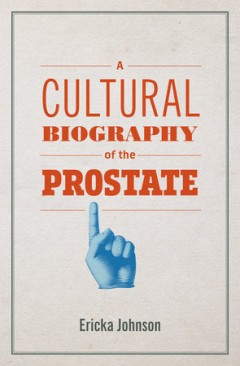
A cultural biography of the prostate
"Unshrouding the prostate to reveal masculinity, sexuality, aging and disease"--OCLC-licensed vendor bibliographic record.
- Edition
- -
- ISBN/ISSN
- 0262366983
- Collation
- 1 online resource.
- Series Title
- -
- Call Number
- -
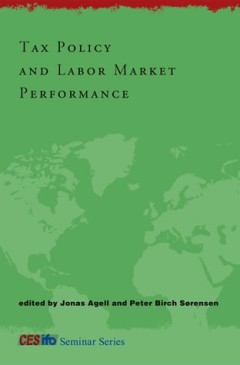
Tax Policy and Labor Market Performance
The effect of tax policies and welfare state incentives on the performance of the labor market: theoretical and empirical analyses by leading European and American economists.High unemployment in many European OECD countries has been attributed to factors ranging from rigid wages and low job mobility to an interaction of high taxes and generous social benefits that may discourage labor force pa…
- Edition
- -
- ISBN/ISSN
- 9780262266864
- Collation
- 1 online resource (xviii, 322 pages) :illustrations.
- Series Title
- -
- Call Number
- -
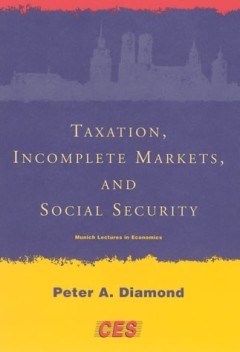
Taxation, Incomplete Markets, and Social Security
In this book, Peter Diamond analyzes social security as a particular example of optimal taxation theory. Assuming a world of incomplete markets and asymmetric information, he uses a variety of simple models to illuminate the economic forces that bear on specific social security policy issues. The focus is on the degree of progressivity desirable in social security and the design of incentives t…
- Edition
- -
- ISBN/ISSN
- 9780262271684
- Collation
- 1 online resource (xviii, 160 pages).
- Series Title
- -
- Call Number
- -
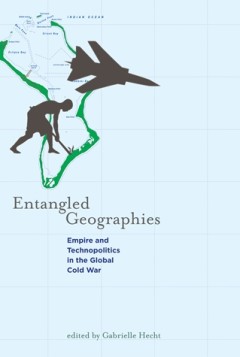
Entangled geographies: Empire and technopolitics in the global Cold War
The Cold War was not simply a duel of superpowers. It took place not just in Washington and Moscow but also in the social and political arenas of geographically far-flung countries emerging from colonial rule. Moreover, Cold War tensions were manifest not only in global political disputes but also in struggles over technology. Technological systems and expertise offered a powerful way to shape …
- Edition
- -
- ISBN/ISSN
- 9780262295710
- Collation
- 1 online resource (viii, 337 pages) :illustrations, maps.
- Series Title
- -
- Call Number
- -

Public opinion and the political economy of education policy around the world
Comparative analyses of public opinion on education policy in developed countries.Although research has suggested a variety of changes to education policy that have the potential to improve educational outcomes, politicians are often reluctant to implement such evidence-based reforms. Public opinion and pressure by interest groups would seem to have a greater role in shaping education policy th…
- Edition
- -
- ISBN/ISSN
- 9780262363488
- Collation
- 1 online resource.
- Series Title
- -
- Call Number
- -

Indecision Points: George W. Bush and the Israeli-Palestinian Conflict
"Although George W. Bush memorably declared, 'I'm the decider, ' as president he was remarkably indecisive when it came to U.S. policy toward the Israeli-Palestinian conflict. His administration's policymaking featured an ongoing clash between moderate realists and conservative hard-liners inspired by right-wing religious ideas and a vision of democracy as cure-all. Riven by these competing age…
- Edition
- -
- ISBN/ISSN
- 9780262326186
- Collation
- 1 online resource (xi, 227 pages).
- Series Title
- -
- Call Number
- -

Rational Action: The Sciences of Policy in Britain and America, 1940-1960
The evolution of a set of fields -- including operations research and systems analysis -- intended to improve policymaking and explore the nature of rational decision-making.OCLC-licensed vendor bibliographic record.
- Edition
- -
- ISBN/ISSN
- 9780262324175
- Collation
- 1 online resource (xi, 399 pages) :illustrations.
- Series Title
- -
- Call Number
- -
 Computer Science, Information & General Works
Computer Science, Information & General Works  Philosophy & Psychology
Philosophy & Psychology  Religion
Religion  Social Sciences
Social Sciences  Language
Language  Pure Science
Pure Science  Applied Sciences
Applied Sciences  Art & Recreation
Art & Recreation  Literature
Literature  History & Geography
History & Geography